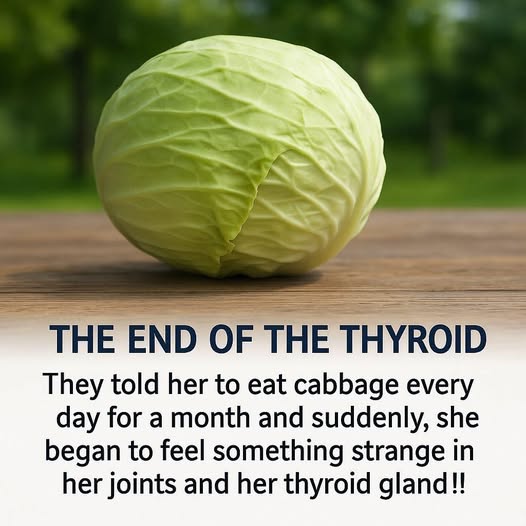Cabbage is one of the healthiest vegetables you can add to your diet. It’s low in calories, high in fiber, and rich in vitamins like C, K, and B6. It also contains antioxidants that protect the body from inflammation and chronic disease.
However, there’s often confusion about whether cabbage is “bad” for the thyroid. This belief comes from the fact that cabbage, along with broccoli, kale, and cauliflower, belongs to a group of vegetables called cruciferous vegetables. These foods contain natural compounds known as goitrogens.
Goitrogens can interfere with the thyroid’s ability to use iodine, which is essential for producing thyroid hormones. In theory, eating large amounts of raw cabbage every day could affect thyroid function, especially in people who already have hypothyroidism or iodine deficiency.
The important point is that cooking cabbage reduces most of these compounds, making it much safer. For the average healthy person, eating normal portions of cabbage — whether raw in a salad or cooked in soups and stews — is not harmful. In fact, it provides many health benefits, from improving digestion to supporting heart health.
Doctors generally recommend moderation. If you already have a thyroid condition, it’s wise to avoid overdoing raw cruciferous vegetables and to make sure you’re getting enough iodine in your diet. For most people, though, cabbage remains a safe, nutrient-rich food that should not be feared.
Bottom line: Cabbage will not “end” your thyroid. When eaten as part of a balanced diet, it’s a powerful vegetable that supports overall health.
